"The researchers found potential improvements in power, stroke length, and foot force symmetry". Note: This post has been updated with new videos and photos from our free sample edition of Science of Rowing. If you'd like to learn more download the sample edition here. Over the past few years researchers have examined the impact of textured insoles on performance in several populations. The majority of the studies so far have identified gait, balance, and other performance benefits. Some of these showed lasting effects weeks after wearing the insoles. One study focused on rowing with some interesting results... What are “textured” insoles? Textured insoles are basically insoles that have little bumps on them instead of a smooth surface like we’re used to. In this study they compared control insoles (normal/smooth), low density insoles (a few bumps), and high density insoles (lots of bumps). Why might they work? Shoes have reduced the amount of feedback we get through our feet. Before shoes we were exposed more often to uneven surfaces and our feet were stimulated by rocks, grass, dirt, etc. By adding texture the hope is that it will restore this natural perception. Textured insoles stimulate the mechanoreceptors of the feet, this stimulation may help rowers better sense the foot-stretcher and therefore, their performance. There is also a whole field that swears by reflexology and the benefits of stimulating the foot. Have you ever gotten a foot massage? What did they find? When comparing insoles researchers found potential improvements in power, stroke length, and foot force symmetry. Although not all differences were found to be statistically significant, the high density insoles performed better in all 3 scenarios. Further research is needed but it might be worth experimenting with especially if you have flat feet, limited ankle range, or an asymmetry in ankle mobility. What were the specific findings? 1) Greater force was applied to a greater area of the footplate. 2) A 4% decrease in foot force asymmetry (not statistically significant). 3) Consistently higher power outputs (not statistically significant). 4) Potential stroke length increase, rowers went 3-19 meters further on time trials lasting 60-100 seconds at stroke rates 18, 24, &32 (not statistically significant). What might this mean for rowers? 1) Increased, and smoother pressure on the handle -> higher power output -> faster splits/boats. 2) Decreased drag on the boat and reduced injury potential. 3) Lower splits, faster boats. 4) Every inch matters. Have you ever won or lost by a bow ball? Overall, pretty interesting findings and I look forward to hearing more as my clients try them. If you'd like to read more check out our free sample edition of the Science of Rowing here. How do I try it? You can experiment wearing them before, during, and/or after training to see how it feels for you. Some of these studies have shown that stimulation before can also affect performance after the insoles have been removed. So it may be beneficial even if you wear them inconsistently. After a lot of research I wasn’t able to find any insoles I trusted except for the Naboso insoles. This product is created and designed by a well respected podiatrist with practical experience in the sports performance field. I suggest trying the performance insoles. They match/exceed the density of the most effective insoles in the study. If you’re interested give them a try and tell me what you find! Click the picture below and add the promo code for a 10% discount! Reference: Vieira, T., Botter, A., Gastaldi, L., Sacco, I. C. N., Martelli, F., & Giacomozzi, C. (2017). Textured insoles affect the plantar pressure distribution while elite rowers perform on an indoor rowing machine. PLoS ONE, 12(11), 1–14.
1 Comment
Leave a Reply. |
Author
Blake Gourley holds a Masters of Science in Sports Performance Training and has over 12+ years of experience working with rowers. Read more Categories
All
Archives
August 2023
|
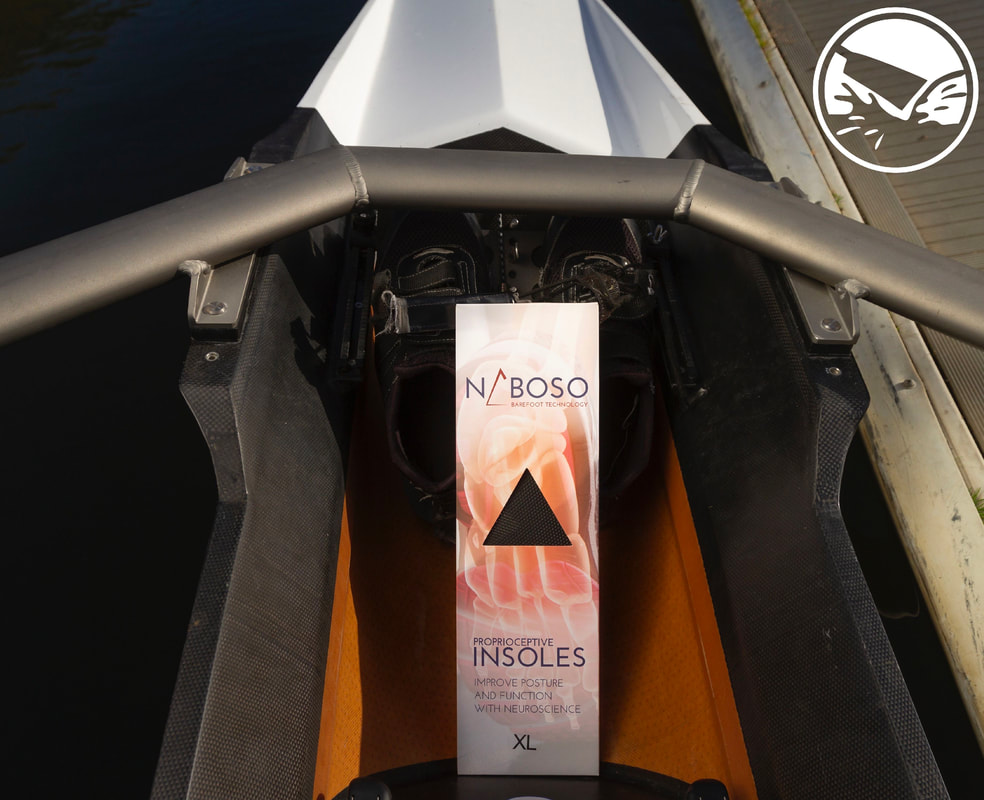
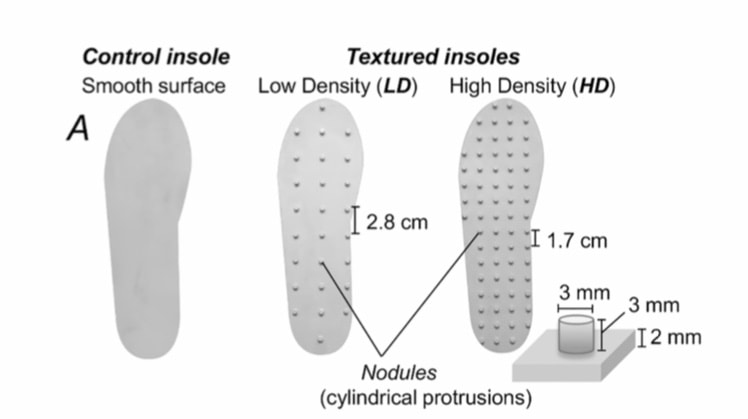
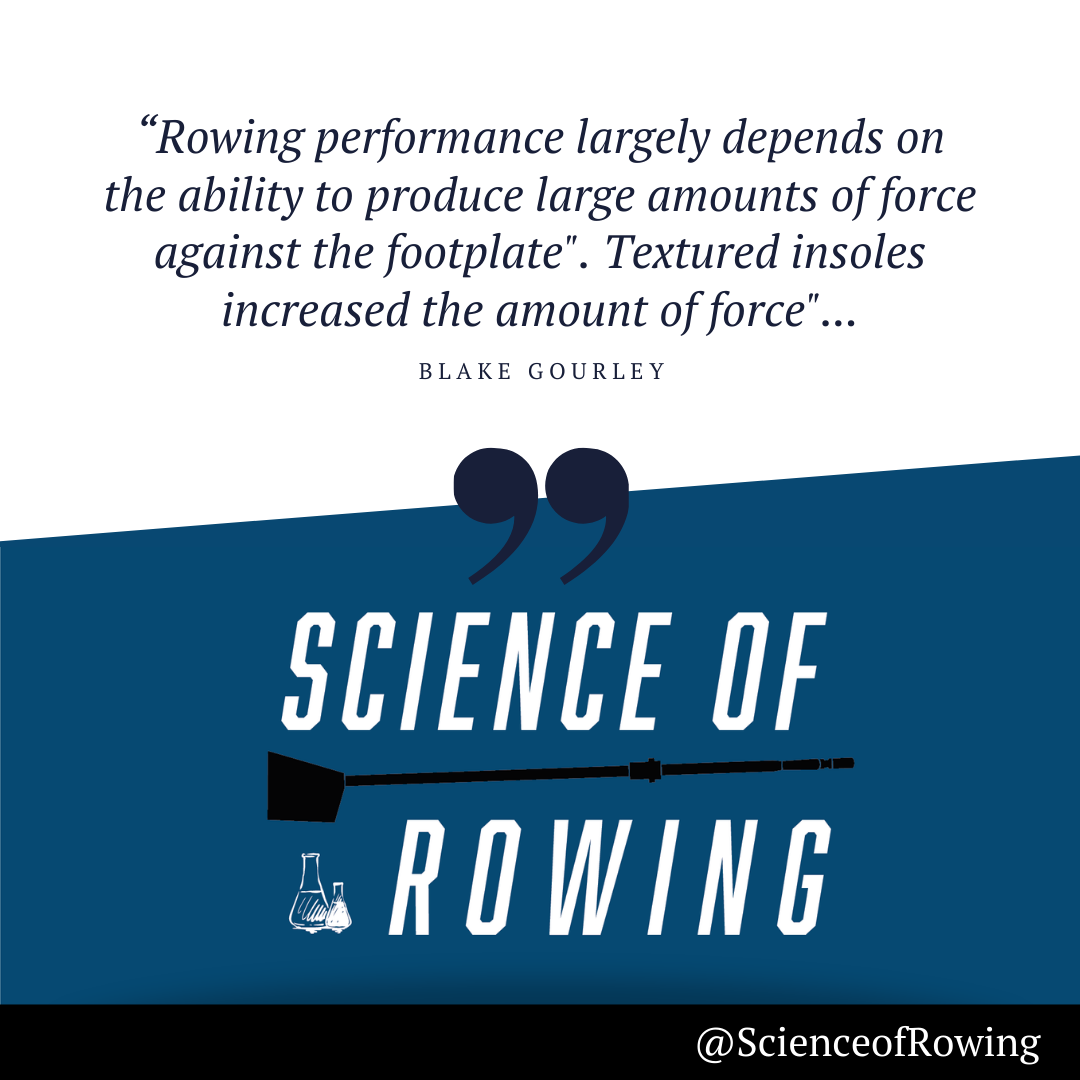
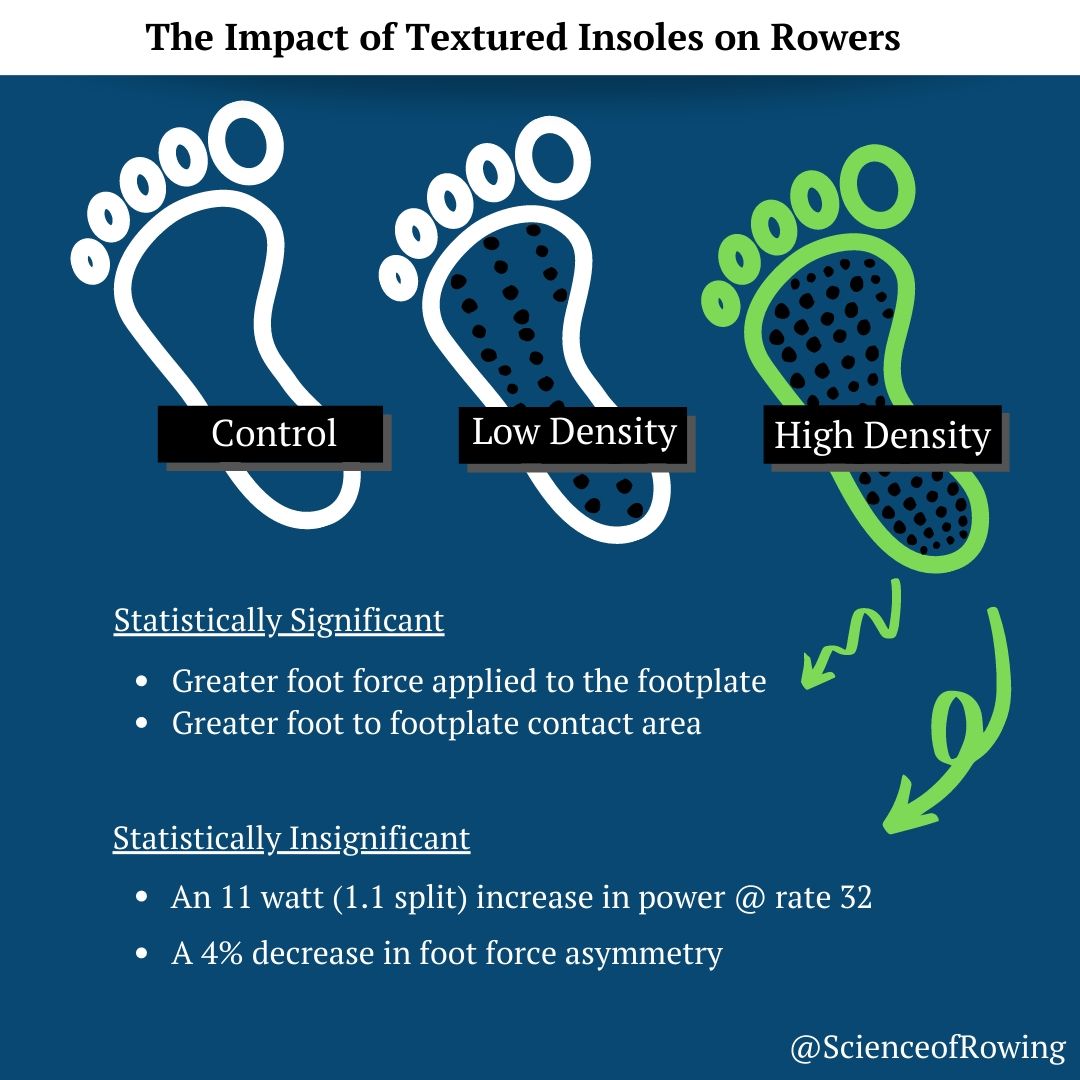
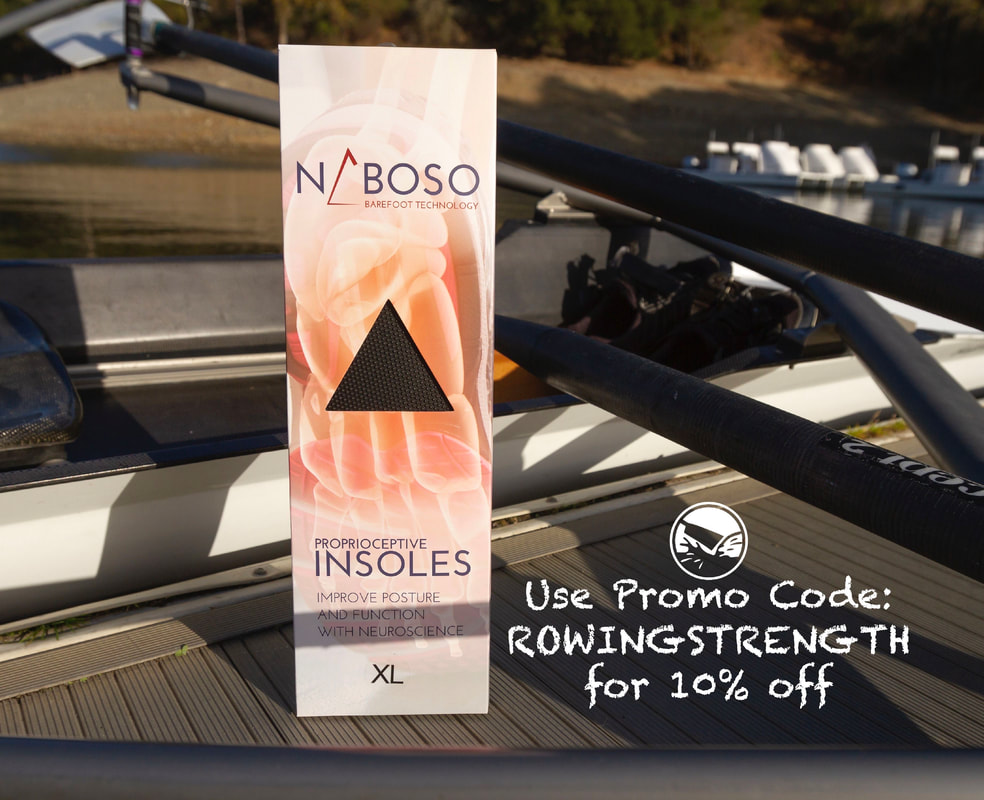
 RSS Feed
RSS Feed